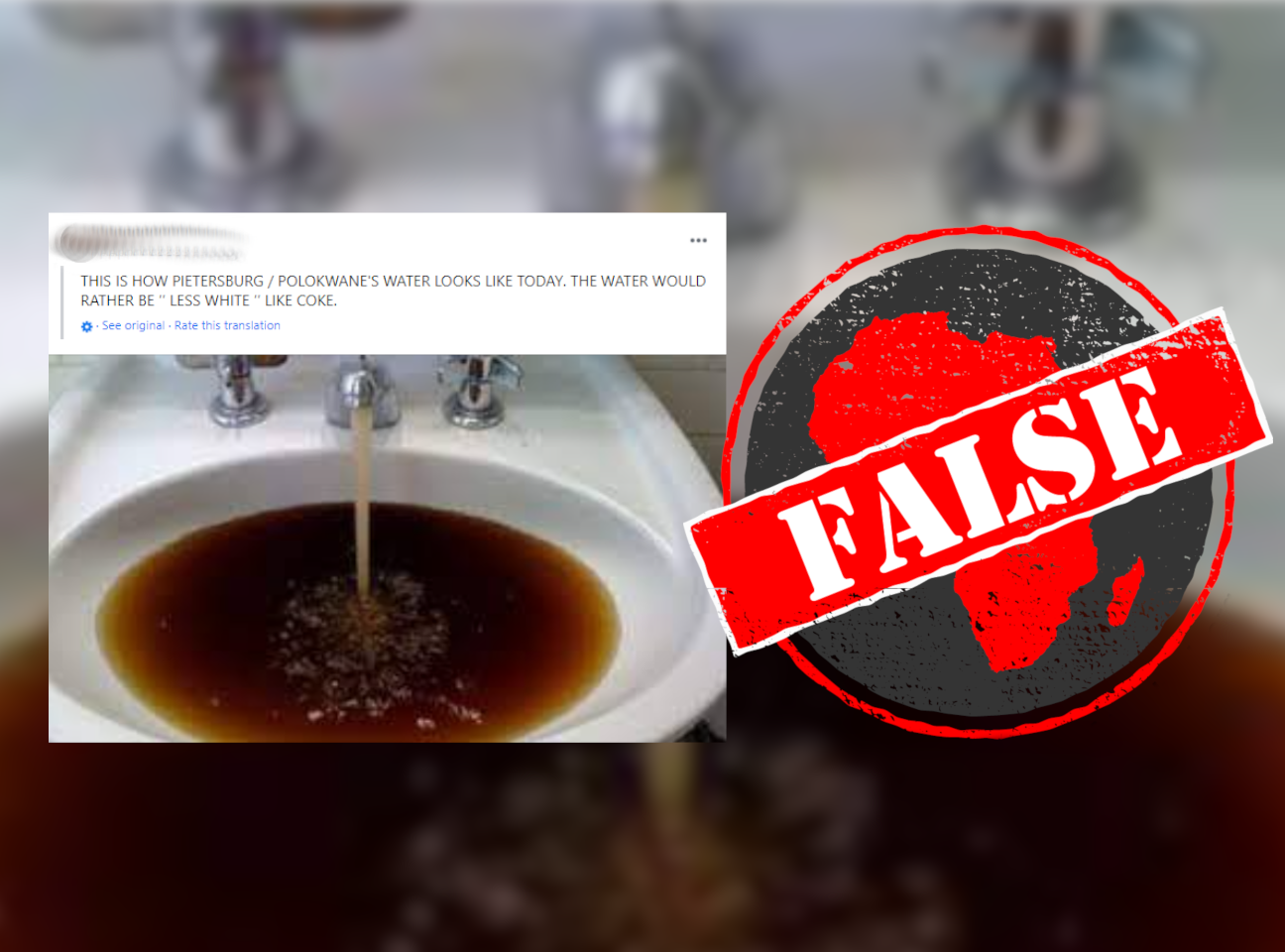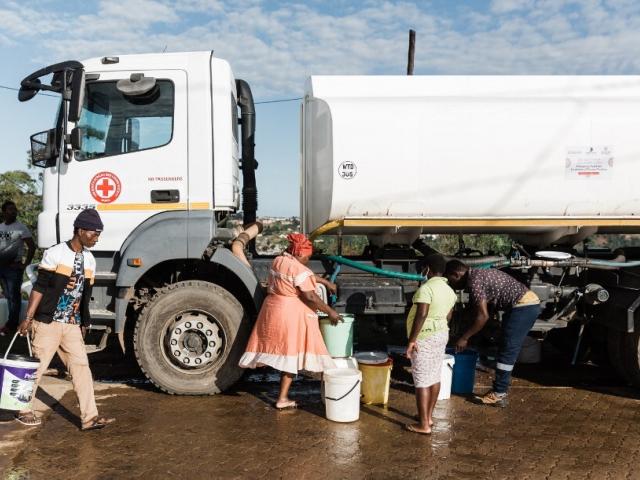A photo of a basin full of brown water was posted on Facebook in April 2021 with the claim it shows the quality of tap water in Polokwane, the capital of South Africa’s Limpopo province.
“So lyk Pietersburg/Polokwane se water weer vandag,” the Afrikaans caption reads. This loosely translates as: “This is what Pietersburg/Polokwane’s water again looks like, today.”
Pietersburg is the former name of Polokwane.
The city is currently experiencing water shortages because of poor infrastructure maintenance. But was the photo taken in Polokwane in April 2021? We checked.

Pollution in San Diego, USA
A reverse image search reveals that the photo has been online for at least nine years. It appears in an April 2012 blog post about pollution in the US city of San Diego. The caption reads: “Tap water contaminated with hexavalent chromium”.
Hexavalent chromium, a compound of the metallic element chromium, is poisonous.
The compound is used in electroplating, stainless steel production, leather tanning, textile manufacturing and wood preservation. It can contaminate water, soil and air.
The photo doesn’t show water quality in Polokwane in 2021.
Republish our content for free
For publishers: what to do if your post is rated false
A fact-checker has rated your Facebook or Instagram post as “false”, “altered”, “partly false” or “missing context”. This could have serious consequences. What do you do?
Click on our guide for the steps you should follow.
Publishers guideAfrica Check teams up with Facebook
Africa Check is a partner in Meta's third-party fact-checking programme to help stop the spread of false information on social media.
The content we rate as “false” will be downgraded on Facebook and Instagram. This means fewer people will see it.
You can also help identify false information on Facebook. This guide explains how.



Add new comment